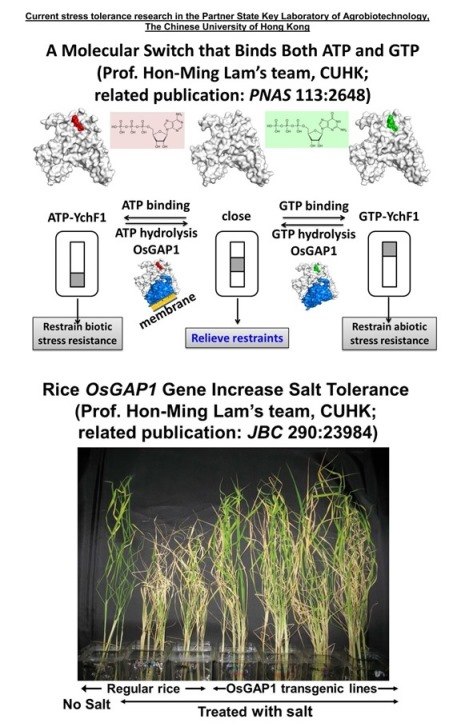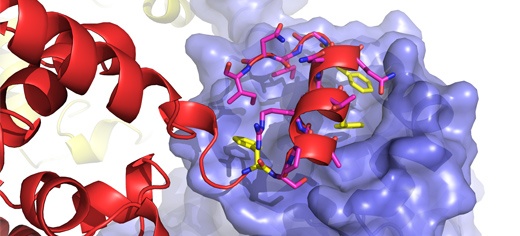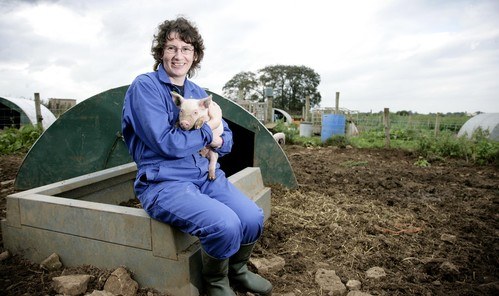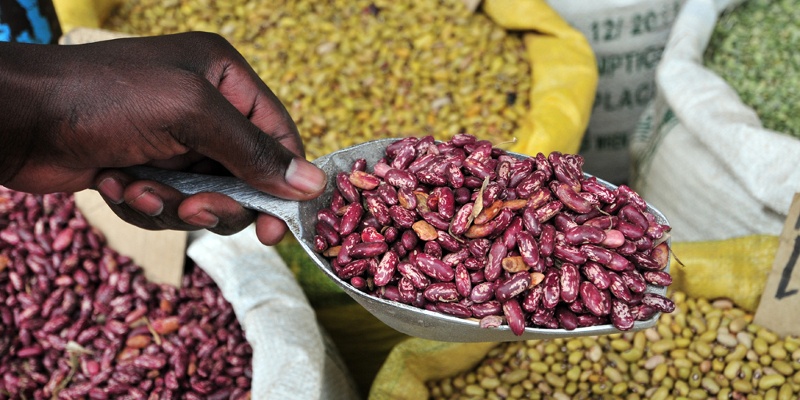
WUN Global ‘Air Sensors Everywhere’ Campaign Launched
Environmental health science researcher Richard Peltier at the University of Massachusetts Amherst, with others around the world, is launching a series of webinars and events for a Do-It-Yourself, citizen science campaign called “Air Sensors Everywhere.” It aims to bring small air pollution sensors to the developed and developing world “to empower people everywhere to use low-cost pollution sensors to reduce pollution-linked disease.”

CUHK Uncovers Structure and Functions of the Rice YchF-type G Protein
Prof. Hon-Ming Lam, Director of the Centre for Soybean Research of the Partner State Key Laboratory of Agrobiotechnology at The Chinese University of Hong Kong, and his team have uncovered the structure and functions of the Rice YchF-type G Protein for the first time. The new findings help improve plants’ defense response and stress tolerance, and maintain a higher agricultural productivity under adverse conditions.

New Pro-Vice-Chancellor (International) appointment at the University of Leeds
Professor Hai-Sui Yu has been appointed as the University of Leeds’ first Pro-Vice-Chancellor (International).

‘Quantum dots’ light the way for new HIV and Ebola treatment
A research team led by the University of Leeds has observed for the first time how HIV and Ebola viruses attach to cells to spread infection. The findings, published in the journal Angewandte Chemie, suggest a new way of treating these viruses: instead of destroying the pathogens, introduce a block on how they interact with cells.

Using old drugs to treat new viruses
A group of drugs already in everyday use to treat psychosis or depression may also be used to defeat deadly and emerging viruses. Researchers from the University of Leeds found that common drugs in everyday use were successful in preventing a particular virus from infecting cells, by blocking the ion channels that regulate potassium levels in those cells.

New funding for livestock research centre
A new government and industry-backed £70million livestock innovation centre has been launched, supported by University of Leeds investment. Bringing together the food industry and researchers, the government has awarded £27.7 million to set up Centre of Innovation Excellence in Livestock (CIELivestock). It aims to transform the productivity of the UK livestock industry by providing a “one-stop-shop” to drive innovation. The University of Leeds investment has been match-funded by government, giving a total of £7m to help develop its specialist pig research facility. Funding from other industry and research institutions makes up the £70 million.

Urgent need to transform key food producing regions in Africa
Agriculture in parts of sub-Saharan Africa must undergo significant transformation if it is to continue to produce key food crops. A new study, published in Nature Climate Change, shows that maize, beans and bananas are most at risk from climate change. The research is the first to allocate timeframes for changes in policy and practice in order to maintain production levels and avoid placing food security and the livelihoods of smallholder farmers at risk. Study lead author Dr Julian Ramirez-Villegas from the University of Leeds, who is working with the CGIAR Research Program on Climate Change, Agriculture and Food Security (CCAFS), said: “This study tells where and, crucially, when interventions need to be made to stop climate change destroying vital food supplies in Africa.
“We know what needs to be done and, for the first time, we now have deadlines for taking action.”

Air quality success, but what about the impact of Brexit?
New research celebrates the success of EU air quality policy, at a time when such policies face an uncertain future because of Britain’s European referendum.
The study, led by the University of Leeds, has found that about 80,000 deaths are prevented each year due to the introduction of European Union (EU) policies and new technologies to reduce air pollution. Published in the journal Environmental Research Letters, it is the first study to look into the effectiveness of specific EU policies to reduce air pollution across Europe. It reveals that the policies have led to a 35% reduction of fine particles in the atmosphere over the period 1970 to 2010, which has improved public health across Europe. The good news, however, comes at a time when such policies face an uncertain future in light of a potential Brexit.